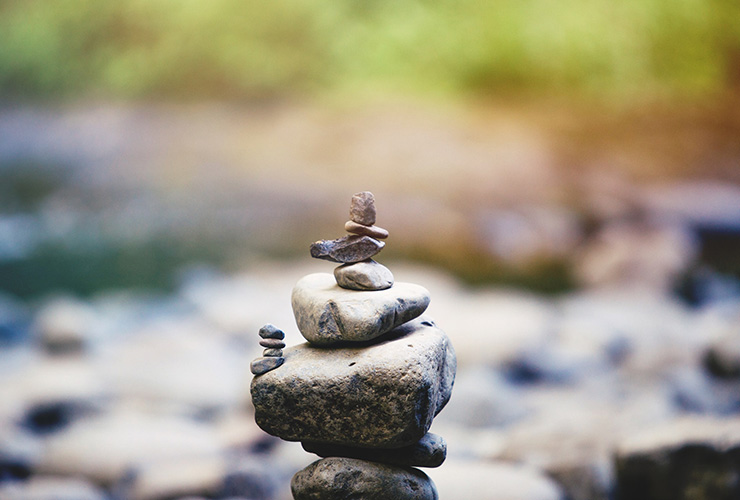
By maintaining balance within the systems of your body, you can realize better overall health, boost your energy, and encourage a positive mindset
—
It seems like everyone is talking about finding balance… and for good reason. Maintaining a state of balance within your body is necessary for emotional and physical health. This is a piece of wisdom that has been passed down through generations, but we still have much to learn about the connection between balance and health.
For starters, your body is always seeking to find balance within itself and with your surrounding environment. Just think of how your body adjusts to a hot or cold room. Homeostasis is the process by which cells (and all living things) naturally seek to achieve a state of balance through the movement of fluids, nutrients, and waste within your body.
Through a complex system of glands, the endocrine system releases hormones to different organs, which regulate bodily functions like blood sugar levels, stress response, metabolism, sleep/wake cycles, and reproductive functions.
Any minor imbalances within this system can lead to complications elsewhere and larger health troubles.
The entire digestive system works to maintain balance in the body by breaking down foods to provide cells the nutrients they need, helping to regulate immune function, and assisting with hydration. If your digestive system is out of balance, you will usually notice changes in bowel movements or frequency of urination.
There are constant messages being sent between your brain and parts of the body through neural pathways. Disruptions in this network can lead to sensory issues, mental health disorders, and a host of sometimes complex neurological problems. On the flipside, you will begin to notice the myriad benefits of a state of balance, such as increased energy, better moods, improved digestion, and less general aches and pains.
Balance applies to your emotional and psychological well-being, as well as your physical body. Because each person is unique, there are no sure ways to achieve balance, but there are some general practices that are known to help. Here are 5:
Practice Self Care
Self-care involves taking the time and making the effort to focus on yourself and your overall wellness. Whether you choose to schedule a therapeutic massage or head to the beach for the weekend, the goal is to do something that leaves you feeling recharged, not depleted.
Let go of any guilt you may have for taking care of yourself, because self-care is not selfish.
Eat a Balanced Diet
One way you can help your body stay balanced is by eating a healthy and well-rounded diet. After all, you are what you eat, right? Instead of adhering to a strict diet that eliminates entire food groups (where’s the balance in that?), look to diets that promote whole, nutritious foods. The DASH and Mediterranean diets are both perennial favorites of nutritionists and medical professionals because they encourage a plant-based eating style with a wide variety of vegetables, fruits, and whole grains.
Schedule a Physical
One sure way to find out if your systems are in balance is to schedule an annual physical with your primary care provider. Have bloodwork and a urinalysis done to make sure everything is good. If there are any irregularities, discuss how to resolve them with your doctor. If you have noticed anything unusual, be sure to bring that up during your appointment. Ask about what you should be doing to improve or maintain your health. Don’t let a minor hiccup at your physical cause you undue stress and anxiety. Instead, uncover the issue and find out what you can do to fix it.
Include Appropriate Exercise
Exercise is an important part of everyone’s lifestyle, no matter what your physical condition and ability may be.
Physical activity is an integral part of maintaining a healthy weight, promoting overall health and a reducing incidence of chronic disease, all while providing a boost to your mood and energy levels.
If you are looking to release stress, try a mind-body modality like Tai Chi or Yoga. Both of these practices can activate your muscles while also developing your awareness of yourself and your body.
Stay Hydrated
Your digestive system needs water to function properly. So does the rest of your body. Early signs of dehydration include decreased urination, confusion, and irritability. To avoid any of that, try to drink at least eight glasses of water each day. Although your body needs more fluids than that to stay balanced, your diet and other beverage choices can make up for the deficit. For the most part, you can let thirst guide when and how much water you will drink but be mindful of sugary or calorie-dense beverages. Stick to water as much as possible. If you miss tasty flavors, try infusing your water with fruits, cucumbers or mint to add some variety to your routine.
You may also enjoy Morning Yoga & Meditation for Energy, Awareness and Intention by Carter Miles